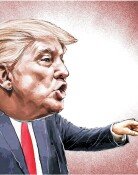World enjoys Korean culture online amid COVID-19 crisis
World enjoys Korean culture online amid COVID-19 crisis
Posted May. 27, 2022 07:53,
Updated May. 27, 2022 07:53

“Thanks to COVID 19, the world is now able to enjoy Korea’s cultural heritage online. We have to turn the COVID-19 pandemic-driven crisis into an opportunity,” Prof. Mohammed Al-Amri at Sultan Qaboos University in Oman said at Royal Hotel Seoul in central Seoul on Thursday morning. “COVID-19 has accelerated the digital archiving of cultural heritage. The same goes for Korea, which is witnessing the digital transformation of its cultural heritage and increasingly holding various cultural events online. Here, accessibility is the key. Its cultural services should be provided in various languages to let people worldwide fully enjoy them.”
At the “2022 KACES International Symposium” of the 11th International Arts Education Week held on Monday at Blue Square in Yongsan, Seoul, Prof. Mohammed Al-Amri gave a lecture on where Oman stands in culture and arts education and its prospects after the pandemic. In the symposium, hosted by the Ministry of Culture, Sports and Tourism and organized by the Korea Arts & Culture Education Service, five experts in culture and arts education from Korea, Egypt, Malaysia, Oman and the United Kingdom delivered presentations under the theme of “Culture and Arts Education in the Post-COVID-19 Era: Recovery and Transition.”
Dr. Al-Amri highlighted that even though the pandemic gave rise to contactless learning, posing barriers to culture and arts education where hands-on practice creates better understanding, it also gave us an opportunity, giving more people the chance to enjoy culture and arts.
As the coronavirus spread across the world, countries came to consider ways for remote interactions and Oman was no exception with a tremendous change in culture and arts education. “Before the pandemic, arts education courses in universities were mostly in-person, with only one or two online classes,” the professor said. “Since early 2020 when COVID-19 swept the world, we let our faculty and students learn how to take courses online. It took a while to change their perception on remote learning but an hybrid mode of online and offline learning became a norm these days.”
Predicting that this two-track learning with a blend of online and offline courses will last, despite COVID 19 turning into an endemic with in-person events and education back on track, Prof. Al-Amri said, “The most ideal model of education on culture and arts education would be the mix of theoretical lectures that many students attend being offered online and hands-on training on a face-to-face basis.”
Jae-Hee Kim jetti@donga.com







